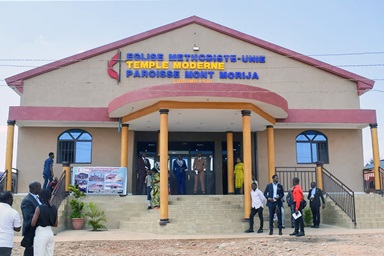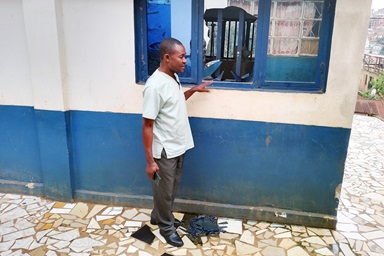Federal construction regulations are threatening the future of Abuja Area 1 United Methodist Church in Nigeria.
The church has been constructing a new building in the capital since 2009 to establish a United Methodist presence there. However, a lack of money has led to delays and fines imposed by the federal government, further challenging completion of the huge structure.
The church is facing another hefty penalty as a new deadline nears.
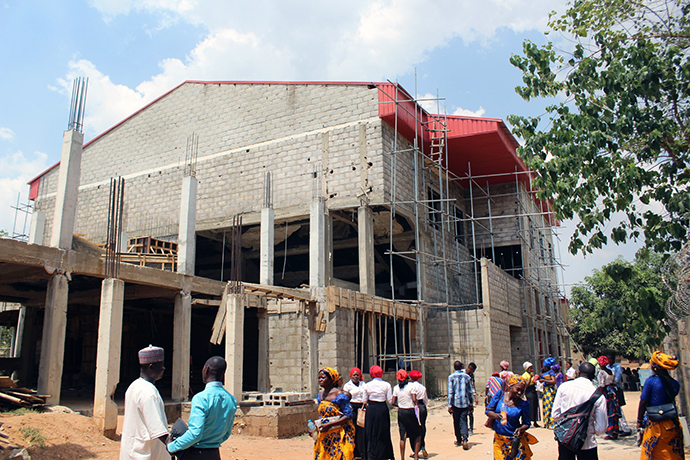
Abuja Area 1 United Methodist Church in Abuja, Nigeria, has been under construction since 2009. The church has been fined several times for failing to meet federal construction deadlines. Photo by E Julu Swen, UMNS.
“I cannot afford to pay a fine of three million nira (over $8,000 U.S.) for violating federal construction regulations, when we can use that money to continue with the church,” said the Rev. Ali Ibrahim, pastor of the church.
Ibrahim, who also is district superintendent of the Abuja District, said the church is the only visible United Methodist Church presence in the capital and allowing it to encounter such challenges from the government will drive members away.
The fines are part of federal construction regulations that state that a structure such as the church must be completed in stages and within specified time limits. Ibrahim said the church has failed to meet federal deadlines several times and has paid fines for the violations.
“I don’t want that to happen again under my watch,” he said.
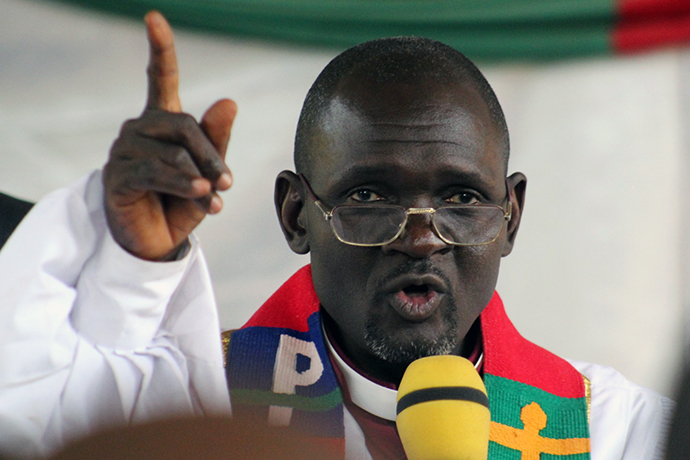
The Rev. Ali Ibrahim, district superintendent and pastor at Abuja Area 1 United Methodist Church, delivers a sermon during service March 4 in Abuja, Nigeria. Photo by E Julu Swen, UMNS.
Since the church opened in 2009, Abuja Area 1 United Methodist Church has been making an impact on people in the community, Ibrahim said. The church has provided refuge for some of the thousands escaping the Boko Haram war in northern Nigeria and is currently providing skills training to young Nigerians to empower them in the job market.
The church continues to hold services while under construction and also has established two preaching points in the Gwarinpa and Kabusa communities for those who aren’t able to travel to Abuja.
“We are having two services every Sunday with more than 1,000 people at each service,” Ibrahim said.
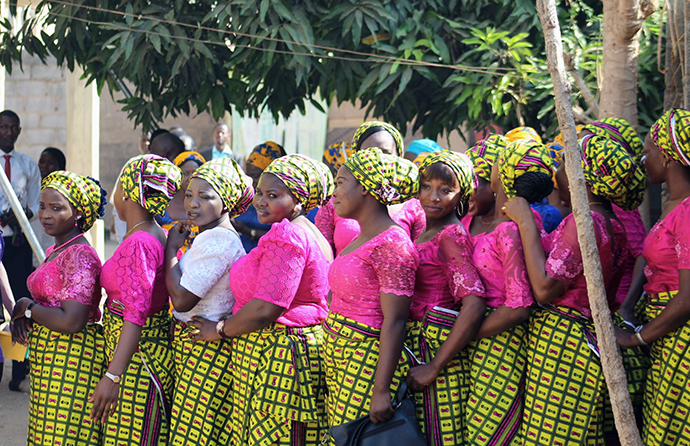
Members of the Women Fellowship Choir gather before Sunday service on March 4, 2018, at Abuja Area 1 United Methodist Church in Abuja, Nigeria. The Rev. Ali Ibrahim said the church holds two services every Sunday with more than 1,000 people at each service. Photo by E Julu Swen, UMNS.
Church member Ade Adebo Yamji said the church is encountering its present construction challenges because the land on which the church is being constructed is in the business district of Abuja, and according to federal regulations, any structure in the area must have a business component.
He said the Federal Construction Agency provided the church with a design that contains the church in the back and a plaza at the front. “That is why we referred to our sanctuary as a conference hall, which means it can be hired by others for meetings and other events.”
He said the sanctuary component was roofed with the help of Nigeria’s Bishop John Wesley Yohanna, but the plaza component is still a challenge.
Yamji, who is in charge of the skills acquisition ministry of the church, said once the church bridges any of the regulations, construction work has to stop until the fine is paid to the federal government, causing more delays.
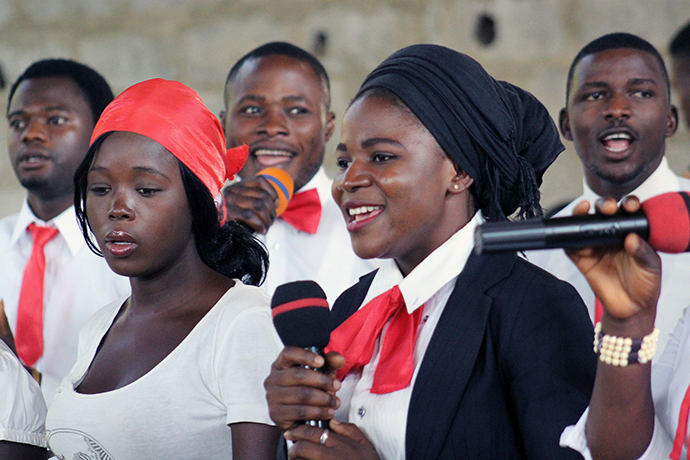
Rose Audu, a member of the Soul Winning Band, sings during service at Abuja Area 1 United Methodist Church in Abuja, Nigeria. Photo by E Julu Swen, UMNS.
Other church leaders in Nigeria confirmed that the threat facing Abuja Area 1 is such that the state can take over the property if the timeline set for completion is not met.
The Rev. John Pena Auta, provost of Banyam Theological Seminary in Bambur, Nigeria, said that such violations can even lead to the state closing or demolishing the structure, adding “violation of construction regulation timelines is a serious offense in Nigeria.”
Though a new fine hasn’t yet been imposed, failing to complete the next stipulated phase of the construction work will lead to the church paying the fine.
“I am asking all of our brothers and sisters around the world to come to the aid of the Abuja Area 1 UMC for us to complete this building,” Ibrahim said. “The church has the potential of serving humanity in Abuja.”
Swen is a communicator in Liberia. News media contact: Vicki Brown, Nashville, Tennessee, (615) 742-5470 or [email protected]. To read more United Methodist news, subscribe to the free Daily or Weekly Digests.
Like what you're reading? Support the ministry of UM News! Your support ensures the latest denominational news, dynamic stories and informative articles will continue to connect our global community. Make a tax-deductible donation at ResourceUMC.org/GiveUMCom.


